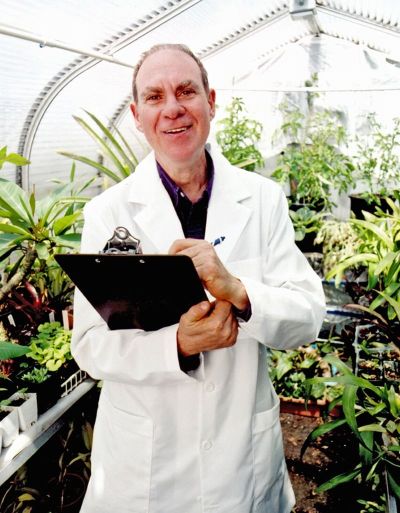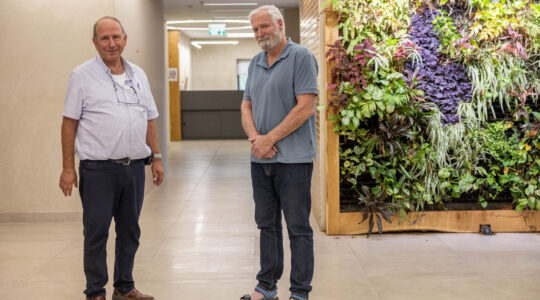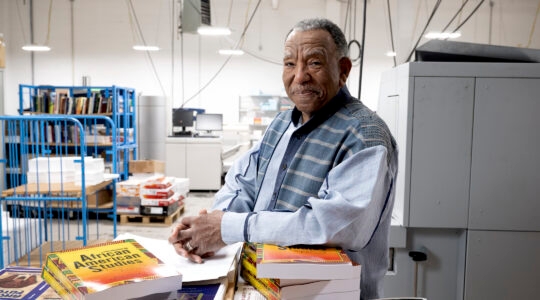OAKLAND, Calif. (JTA) — Ed Rosenthal has been working to legalize marijuana in California since he moved to the state in 1972.
Vindication may finally be at hand for the Bronx-born former yippie.
On Nov. 2, California voters will consider Proposition 19, a ballot initiative to legalize the cultivation and possession of small amounts of marijuana for recreational use, and empower local governments to regulate and tax its sale.
Medical marijuana has been legal in California since 1996, and is legal now in 13 other states and the District of Columbia. But if Prop 19 passes — recent polls show opposition and support running neck and neck — California will become the first state to legalize pot for general use.
Plenty of Jews are throwing their weight behind the initiative.
“This has been a long time coming,” said Rosenthal, 66, a longtime marijuana activist and the author of books on everything from growing the herb to avoiding jail time.
Rosenthal, a columnist for High Times magazine, is sitting in his office — a small, cluttered room in the Oakland home he shares with his wife, Jane Klein. An ashtray on the desk is filled with roaches, and a lifetime achievement award for his drug policy reform work hangs on the back wall.
He makes no secret of his own marijuana use, saying that he smokes it, drinks it, eats it and puts drops of it under his tongue. Rosenthal no longer grows the stuff, however, acting now as a consultant, developer of a new herbicide and an organic pesticide, and executive director of Green Aid, a medical marijuana legal defense and education fund.
“Jews have a special affinity to marijuana,” he mused. “It’s an intellectual drug, not a drug that takes you outside your senses like alcohol or opiates. And a lot of marijuana research comes out of Israel.”
THC, the active hallucinogenic ingredient in cannabis, was first isolated in 1964 by Raphael Mechoulam, now a professor of medicinal chemistry at Jerusalem’s Hebrew University. Other studies of the drug’s effect have been conducted at Israeli institutions.
“A lot of my parents’ friends in Boca Raton use it,” chimed in Klein, an active member of Oakland’s Temple Sinai. “My aunt’s husband was diagnosed with liver cancer. I gave [pot] to her and said this isn’t just for him for after the chemo, it’s for you because you’re going through stress. She’s in her 80s, and it gave her back her appetite.”
Even if Prop 19 passes, Rosenthal points out, marijuana is still illegal under federal law, putting those who wish to grow, sell or possess it at risk of federal prosecution. That’s the case in states such as California where marijuana is legal for medical use.
In 2002, federal agents arrested Rosenthal in Oakland even though he had been deputized by the city government to grow marijuana for medical use. He was convicted the next year by a jury that was not told of his connection to the city — an omission that later caused many of the jurors to denounce their own verdicts. A sympathetic judge sentenced him to one day in prison, time served.
In February 2003, a group of supporters from Congregation Beth Am in Los Altos, a Silicon Valley Reform synagogue, handed out “Ed Rosenthal — Hero” buttons to delegates at the Reform movement’s West Coast regional biennial.
The campaign was organized by policy analyst Jane Marcus, who headed the congregation’s Medical Marijuana as Mitzvah project, itself launched to support medical marijuana on the grounds of Jewish values of social justice and compassion for the sick.
Jewish institutional support for legalizing marijuana has been spotty and limited to tentative support for its medicinal use.
In 1999, Women for Reform Judaism passed a resolution calling for greater research into its pain-relief properties, and urging the U.S. Congress to permit physicians to prescribe it for critically ill patients. A similar resolution was passed by the Central Conference of American Rabbis, the Reform rabbinical association, in 2001.
In 2003, the Union for Reform Judaism passed a “resolution on the medicinal use of marijuana” urging federal legislation to permit the drug’s medicinal use under a physician’s supervision, and calling upon Reform congregations to advocate for such legalization at the local, state and federal levels. The Reform movement thus became the first religious body to call for such legalization, followed soon by the Presbyterians.
No other Jewish denomination has come out publicly for or against marijuana’s legalization. No Jewish institutions, including any Reform bodies, support Prop 19.
But individual Jews have been vocal in their support , including mega-philanthropist Edgar Bronfman, who penned an Oct. 20 editorial for the San Jose Mercury News urging its passage on the same grounds that Prohibition was repealed 77 years ago.
“Prohibitions of widely desired products or services don’t work,” he wrote, adding that taxing and regulating marijuana along the lines of alcohol will fund badly needed social services, free up the jails and court system, and bring rationality to an argument that is often anything but.
A state report values California’s marijuana crop at $14 billion annually.
Marcus, who is on the board of Women for Reform Judaism and a member of the URJ’s Commission on Social Action, last week sent a letter in support of Prop 19 to all the Reform congregations in the state.
Noting that she was “speaking as an individual,” she urged Jews to vote yes on Prop 19 in the name of social and racial justice (a preponderance of those arrested for drug use are non-white), compassion for the ill, social and financial stability (taking a multibillion-dollar crop out of the hands of drug cartels and taxing it for the country’s benefit), and general good sense.
“I keep going back to the issue of Jewish values,” Marcus told JTA. “The Just Say No generation didn’t allow us to be honest with our kids about the relative dangers of alcohol versus marijuana. Our country’s drug policy is wrong — addiction should be treated medically, as an illness.”
Ethan Nadelmann is executive director of the New York-based Drug Policy Alliance, a nonprofit he founded in 1994 that supports legalization and regulation of marijuana, among other drug policy reform issues. He was in California last week stumping at a San Francisco Reform synagogue on behalf of Prop 19, as well as taking part in a conference call with the leadership of the Reform movement’s Religious Action Center.
“Is this good for the Jews?” he asked JTA, speaking rhetorically. “It’s good for individual values and social justice, so yes, it’s good for the Jews. The alternative — the war on drugs — is grounded in ignorance, fear, prejudice and profit, values one would like to believe are [anathema] to Jews.”
Jews have always been involved in social justice work, Nadelmann points out, and drug policy reform “is the cutting-edge social justice issue of the day.”
Even so, he adds, whereas Jews constituted the bulk of his staff and supporters a decade ago, more and more African Americans, Latinos and GLBT (gay, lesbian, bisexual and transgender) activists now fill those ranks.
“To a certain extent, gays are the new Jews in drug policy reform,” Nadelmann said, noting that those who cut their political teeth in the AIDS battle are now turning to marijuana legalization as another issue affecting their community. “I’m struck by the number of GLBT activists involved in my organization and among my funders.”
Opponents of Prop 19, who include most key elected officials in the state, police associations and seated district attorneys, call it deeply flawed and chaotic. They say that because regulation and taxation is left to local governments, wildly different situations could exist city by city. Drug-free workplaces could no longer be enforced, the opponents say, and while lighting up behind the wheel would be forbidden, lack of enforcement mechanisms in the bill means that drivers who are already high could operate moving vehicles such as school buses or delivery trucks.
Prop 19 foes also fear that greater availability will lead to more users, leading to health problems and a greater number of regular users of the drug.
But even if the initiative does not pass, Nadelmann, Marcus and Rosenthal believe its political impact already has been felt.
“It’s changed the conversation,” said Marcus. “It’s not a question anymore of whether it will pass but when.”
What will Rosenthal do then? He looks up with a sly grin.
“Well, I moved here 38 years ago for Prop 19,” he said. “If it passes, my work here is done. I’ll probably go back to the Lower East Side. Or maybe Williamsburg.”

Help ensure Jewish news remains accessible to all. Your donation to the Jewish Telegraphic Agency powers the trusted journalism that has connected Jewish communities worldwide for more than 100 years. With your help, JTA can continue to deliver vital news and insights. Donate today.






